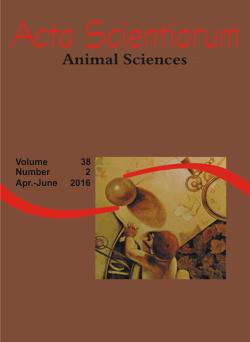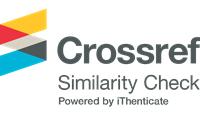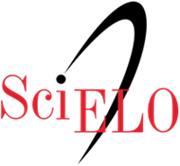<b>Performance of Japanese quails fed diets with low-protein and isoleucine
Abstract
Aiming to assess isoleucine levels in low protein diets for laying Japanese quails, 648 quails of 182 days of age were distributed in experimental block design with six treatments and six replicates of 18 birds each. Treatments consisted of a basal level corresponding to 0.672% isoleucine and supplemented with isoleucine to the levels of 0.816, 0.960; 1.104; 1.248%. The experimental diets were compared to a control diet containing 20% CP. The parameters studied were: performance, egg quality, total solids and nitrogen in the excreta. There was a linear increase only for isoleucine intake with increasing levels of isoleucine in the diets. The comparison of mean values of each combination of isoleucine levels for diets with 16% CP with the control with 20% CP showed that the intake of CP and isoleucine, egg weight, nitrogen excretion and yolk color were significantly affected. For Japanese quail fed diets with 16% CP, with isoleucine level at 0.672%, meets the requirements for obtaining satisfactory performance and egg quality and promoted a reduction in nitrogen excretion.
Downloads
DECLARATION OF ORIGINALITY AND COPYRIGHTS
- I Declare that current article is original and has not been submitted for publication, in part or in whole, to any other national or international journal.
The copyrights belong exclusively to the authors. Published content is licensed under Creative Commons Attribution 4.0 (CC BY 4.0) guidelines, which allows sharing (copy and distribution of the material in any medium or format) and adaptation (remix, transform, and build upon the material) for any purpose, even commercially, under the terms of attribution.
Read this link for further information on how to use CC BY 4.0 properly.








































